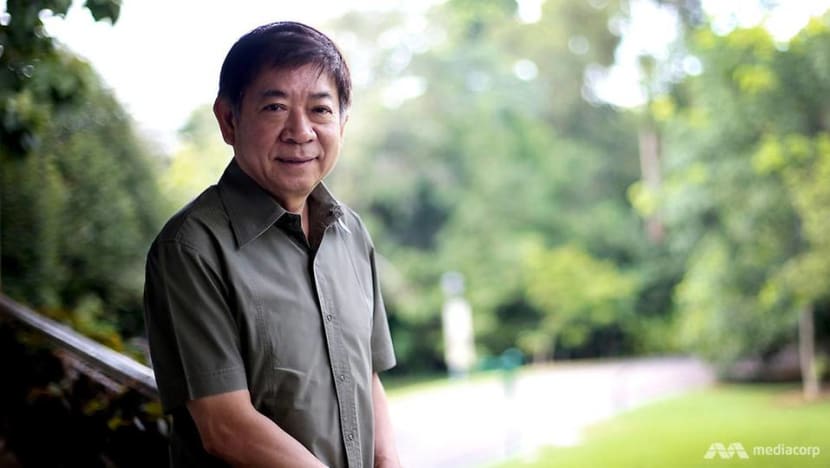Khaw Boon Wan to be chairman of entity managing SPH's media business

Former Transport Minister Khaw Boon Wan. (File photo: TODAY/Jason Quah)
SINGAPORE: Former minister Khaw Boon Wan will be the chairman of the not-for-profit entity that will oversee Singapore Press Holdings' (SPH) media business when it is hived off, said Communications and Information Minister S Iswaran on Monday (May 10).
SPH said last week that it will transfer its entire media-related business to a newly formed public company limited by guarantee (CLG), amid the ongoing challenge of falling advertising revenue.
Speaking in Parliament, Mr Iswaran said the decision to appoint a chairman was an important and immediate decision that had to be made by the CLG.
The decision was discussed with SPH’s existing management shareholders, who agreed to form the CLG and be its founding members. This ensures that local news media will remain “in the hands of trusted institutions with a long-term stake in Singapore”, Mr Iswaran said.
The management shareholders are OCBC, Great Eastern, UOB, DBS, Singtel, NTUC Income, Temasek via Fullerton, the National University of Singapore and Nanyang Technological University.
“They have all agreed that, given the national importance of this undertaking and the scale of the challenge, the chairman should be Mr Khaw Boon Wan.
“With his high standing and more than 25 years of public service experience in various senior appointments, Mr Khaw will be able to provide strong strategic leadership for the CLG,” said Mr Iswaran.
He added that Mr Khaw has agreed to the appointment, and will speak about this "in due course".
In a statement on Monday, Mr Khaw said the appointment is a "heavy responsibility".
"I accept it with some anxiety as I have no digital media experience," he said, adding that he will look into ways to "adapt relevant experiences from successful transformation elsewhere".
"I agree with Minister Iswaran on the local media's critical role and will do my best to ensure we succeed in this national project," said Mr Khaw.
"This assignment will disrupt my retirement! In the last one year, I have been blissfully content. But I cannot allow a Singapore institution to go into decline.
"I will see how I can help unleash the talent and the passion in our newsrooms. We will re-focus on our primary mission of providing quality journalism to help build this young nation."
In a separate interview with CNA, Mr Khaw said that the short-term challenge is a financial one.
"The ability to convert the eyeballs into regular steady income is a huge challenge, not just to SPH but all over the world. I think Mediacorp has a similar experience as well. But having the outreach I think is the first step, then we can think about how else can we do to improve on the income," he said.
"One major step that some of the successful media houses have done overseas is to step up digital media transformation decisively, with a view to grow the number of paid subscriptions, and this would certainly be a major strategy that we would undertake."
READ: SPH to restructure media business into not-for-profit entity amid falling revenue
READ: Transport Minister Khaw Boon Wan to retire from politics after 19 years
Mr Khaw retired ahead of the General Election in July last year, after a political career in which he was known as “Mr Fix-it” for having tackled thorny issues ranging from housing to transport.
He was most recently the Coordinating Minister for Infrastructure, as well as Transport Minister – a portfolio he was given in 2015 to solve the problem of train disruptions.
Before that, he served in the National Development Ministry, tackling issues over Singapore’s public housing supply. He also worked in the Health Ministry in 2003 during the severe acute respiratory syndrome (SARS) outbreak.
HIGH-QUALITY MEDIA “ESSENTIAL TO FABRIC OF OUR NATION”: ISWARAN
The restructuring by SPH is a “watershed” in the evolution of the local news media scene, said Mr Iswaran. “But we are convinced that it is essential, if our news media are to survive as high-quality news outlets."
He said high-quality and professional local news outlets are “essential to the fabric of our nation”.
Apart from reporting on local developments, they help interpret global events through a Singaporean lens and provide a balanced range of views to inform national debates and foster a national consensus, said Mr Iswaran.
Vernacular media are also important for preserving the voices of different communities within Singapore’s multiracial society, he said.
Local media “write the first draft of our history” and serve as a record of citizen’s collective experiences, “giving future generations of Singaporeans a sense of how we saw the world”, he said.
“Without high-quality local media, the quality of our public debate and discourse will be compromised, and we will slowly but inexorably become less cohesive as a society," he said. “Given what is at stake, the Government must take a long-term view, and adopt measures to secure the sustainability of our local media."
This is why the Government supports SPH's restructuring proposal, the minister said.
READ: SPH restructuring will balance 'conflicting' expectations of public, shareholders: Lee Boon Yang
SPH’s current model as a listed company is no longer viable, with advertising revenue declining sharply and significant investments needed to build long-term capabilities, he said.
The restructuring will remove SPH's media business from the constraints of a listed company, while funding by the Government will help in areas like digital innovation.
Mr Iswaran said a similar funding model with Mediacorp – the country’s core national broadcaster – has worked well. Having such national news outlets is a public good that benefits the whole of society, he added.
“Although the business and financing model will change, the Government does not intend nor expect this to affect the relationship between MCI (Ministry of Communications and Information) and the SPH newsroom.
“The Government is mindful that our local news media must remain credible institutions that are trusted by Singaporeans, and that it remains the responsibility of the editors and journalists in SPH Media to report news and diverse opinions objectively."
REGULATIONS IN PLACE
The CLG’s success depends on three key factors: Strong leadership to set and execute a strategic transformation; a robust business strategy; and a capable team of professionals in newsrooms, said Mr Iswaran.
The Newspaper and Printing Presses Act (NPPA), a law regulating ownership and control of local newspaper companies, will apply to entities under the CLG, the minister said.
Under the law, SPH currently issues two classes of shares – ordinary and management shares. Management shareholders have special voting rights on resolutions related to the appointment of directors of the newspaper company.
The intent has always been for these shares to be held by “reputable and established institutions” that are committed to Singapore’s stability and success, Mr Iswaran said.
READ: Many governments helping their country’s media; SPH case no different: Shanmugam
“As SPH restructures its media operations, we want to ensure that its management shareholders continue serving as custodians of the CLG,” he said, referring to the nine organisations earlier.
The membership will eventually be widened to include “newer and more diverse institutions” as stakeholders of the CLG, Mr Iswaran added.
Although the NPPA will not apply to the CLG itself, "appropriate safeguards" will be incorporated in the constitution of the CLG to ensure that its structure achieves its purpose, the minister said.
LOCAL MEDIA OUTLETS AS CHERISHED INSTITUTIONS
Mr Iswaran added that Singapore only has two main local news media organisations, SPH and Mediacorp.
“While there are potential synergies and opportunities for collaboration between them, we can ill afford the convulsions and closures we have seen elsewhere, with a consequential loss of diversity and choice in our media landscape."
Local media companies are not just economic entities, he said, but also “cherished institutions” that reflect the country’s values.
The success of the restructuring, and the future of the local news media, depends on journalists’ and editors’ commitment to building credibility and trust among audiences, he added.
Additional reporting by Gwyneth Teo












